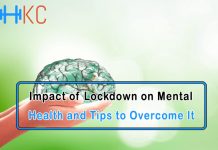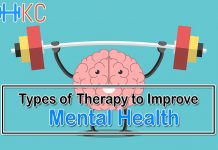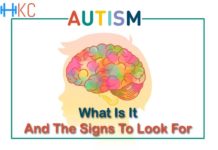Depression is a significant personal issue that can lead to severe problems with one’s self, family, and friends. A person living with this mental health problem needs to seek professional help for appropriate medical attention, but this is a highly challenging process. Close friends of people living with depression must serve as number one sources of encouragement in seeking the help of a mental health professional.
Here are some suggestions that you may want to try:
1. Earn their trust by talking to them about how they are feeling
Visiting a psychologist or getting a counseling session will not be emotionally easy for your friend, noting that these professionals are considered strangers. Your friend will search for someone they can trust before they open up. Close pals may convince them by first garnering their confidence that you are willing to listen and be with them all the way through.
In talking to them about their emotional status, keep in mind that people who have depression do not notice the slightest symptoms, but the signs might be visible to those surrounding them. Some of these symptoms listed by Croydon Psychology include patients experiencing weak physical feeling and demotivation. They also experience sudden lack of interest with things they used to like.
During your conversation, you can have a mild investigation and subtly ask them the following:
- Were there instances when they felt alone?
- Have they noticed that they lost interest in some hobbies, food, or things they used to like?
- Do they regularly have uncontrollable negative thought patterns?
- Was it difficult getting out of bed and performing their usual routine?
- Do they experience hardship in concentrating?
- How long do they sleep? Do they frequently oversleep or lack sleep?
If most of the answers to those listed above are “yes”, there is an urgency for you to act on it right away and get them to schedule an appointment with a psychologist or therapist quickly. You might be able to relieve their loneliness for a time but a therapist will help them for the long term.
2. Educate your friend with the concepts of depression and mental health problems
After talking them through about how they are feeling, your friend must confirm the existence of some various visible effects of depression working in their body. On your part, explain to them that only psychologists or psychiatrists can accurately diagnose such conditions. By doing this, they will affirm the need to seek help from mental health professionals. Know that one’s discovery of depression within themselves may create an explosion of extreme dramatic emotions.
Some people’s violent reactions are, most of the time, due to their thoughts that they will never be capable of living normally since they carry such sickness. It must be clarified to your friend that the first step to enjoying a healthy life amidst depression is to seek help from a psychologist or mental health counselor.
3. Share some positive stories on the victories of seeking professional help
Understand that by default, your friend will find it hard to accept the possibility of having depression. This scenario will significantly affect their judgment on and perception of seeking help from mental health professionals. With this tendency, they would instead opt not to confirm nor deny the existence of depression, hence delaying the aid that they deserve.
To prevent this from happening, indirectly tell them anecdotes of some other friends’ positive experiences in visiting psychologists or psychiatrists and how the diagnosis helped them in getting through life while struggling with depression. In doing this, be careful not to compare them to your other friend’s success, otherwise, they can feel more insecure and intimidated.
4. Physically join your friend on his or her first trip to the psychologist
Either good news or bad news, your friend needs a trusted buddy to accompany them during their visit to the professional. Their decision might still change even after the minute they step into the clinic, so your role during this day will not just be about your company; instead, you become a massive push to your friend’s recovery. The following will guide you on what to do during the visit:
- Personally introduce your friend to the doctor to help them open up in a clinic setting. Initially, your friend will think of them as a stranger so it would be beneficial if there is someone who can ward off the uncomfortable atmosphere.
- Aside from the tests to be conducted to your pal, the attending psychologists will also spend time talking to you and give you pointers on how to help your friend get over this illness. The doctor shall also inform you about their findings such as emotional triggers and mental health history.
- The psychologist will be relying on you for updates or when they deem check-up is necessary. Save their contact details in your phone or address book; this may also come in handy when another friend needs help.
- Inquire about the necessity for some de-stressing routines such as taking a break from work or school, having a vacation, or performing leisure activities.
- Take note of the doctor’s recommendation such as the amount of exercise and details in the prescription like the name of medicines, dosage per intake, and frequency.
5. Briefly discuss the situation to your friend’s family and come up with adjustments
Many families are still not quite literate about mental health problems; thus they have difficulty in dealing with their family members who are struggling with depression. Explain to them how depression works in a person’s body and how it weakens their functionality. Likewise, inform them that your friend will now need their encouragement to attend to various routines, like frequent counseling, check-ups, and sessions with a support group. Some key points to remember when educating about depression include:
-
Depression is an outcome of hormonal imbalance
The endocrine system of an affected person is incapable of releasing enough serotonin, the so-called “happy hormones”. The insufficiency of this hormone is the reason behind one’s constant feeling of fatigue and lack of enthusiasm.
-
It is not the person’s fault that they are suffering from such illness
The hormonal makeup of a person is not controllable by their preferences and choices. One cannot switch on and off depression within their body.
-
Depressive episodes have triggers
There are legitimate reasons behind one’s unexpected change in emotions, although invisible to the naked eye. Attacks are not products of the patient’s small choices or pessimism.
-
Learn the language
Empathic choice of words hugely gives a breath of fresh air for a person with depression. Always tell them that you feel how they are suffering, even though in different intensity. Be wary that they are in a state of emotional vulnerability so be careful not to sound dismissive of their experiences and feelings.
-
Do not treat them differently
Your friend is still your friend. They still have their memories, relationships, and feelings intact. Their functioning might be slightly different, but they still hold close to their loved ones dearly.
Keep in mind that it will not be easy for your friend’s family to accept such circumstance as well. Assure them that you will also be keeping in touch regularly to check on them vis-a-vis their relationship with your friend and their well-being. Doing so can foster a sound environment for your friend’s speedy recovery and minimizes the potential damage that the sickness may bring.
6. Constant reminder is a key
Always make them feel that you are with them and ready to listen to them anytime. Friends and family members need to transform themselves into being a support group for the patient. Validation and affection as provided by loved ones constitute a large part in the recovery process. Your friend will need your words of encouragement for them to break out of their depressive habits and maintain contact with the doctor. Respect their experiences and feelings as well.
As a follow-up, equip your friend with items that can assist them in monitoring their mental health. Some planners nowadays already have mental health trackers and a rate-your-feelings feature in line with this objective. These products can also remind them of their daily prescribed medication and routines that can help them adjust physically. Should the psychologist ask for updates or improvements, your friend can conveniently show the doctor their tracker.
If this option is too expensive, try opting for trinkets with inspirational quotes to spark positive vibes within them every day.
7. Repeat the motivational process
The encouragement your friend needs does not stop after the first check-up. The psychologist also needs to keep an eye on your friend’s mental health. Their mood swings might cloud their judgment on whether or not they should have another session with the professional. Try to talk to them again about how they feel, and remind them why they need to maintain contact with the doctor.
Final Thoughts
Depression poses a considerable challenge for a person to handle the pressures of life. However, depression can only do minimal damage as long as supportive friends and beloved family members are out there to take on another person’s constant battle against depression. So the next time you come across a friend who seems like suffering from depression, be that good friend and convince them to seek a psychologist’s help.














